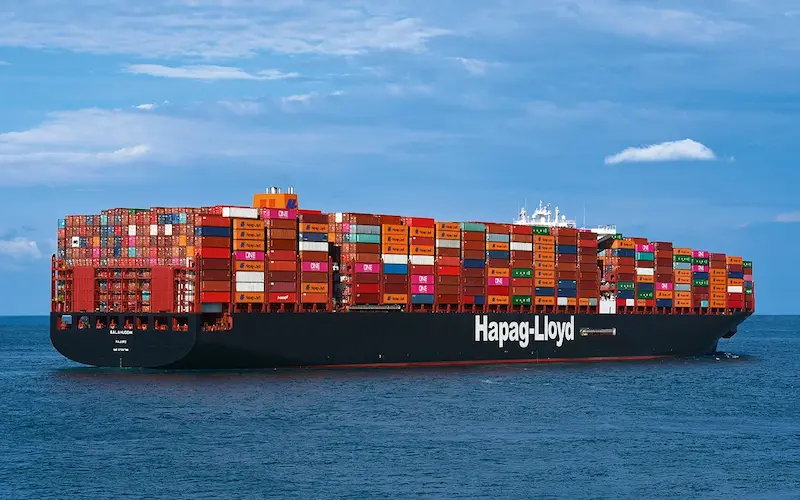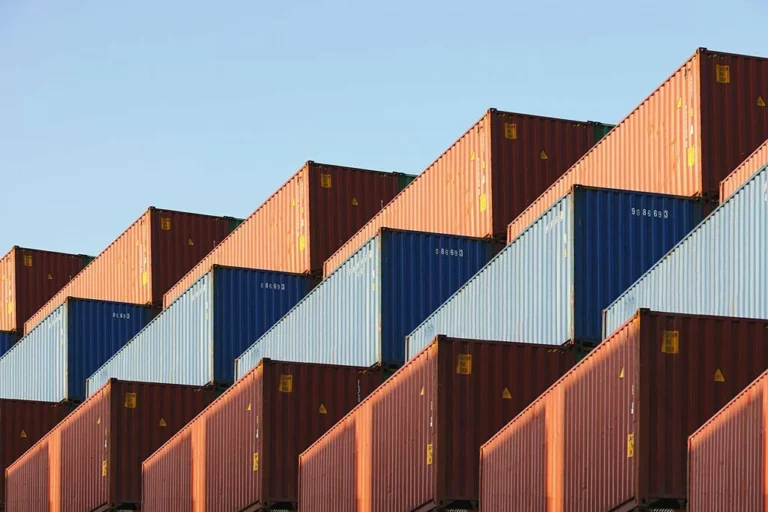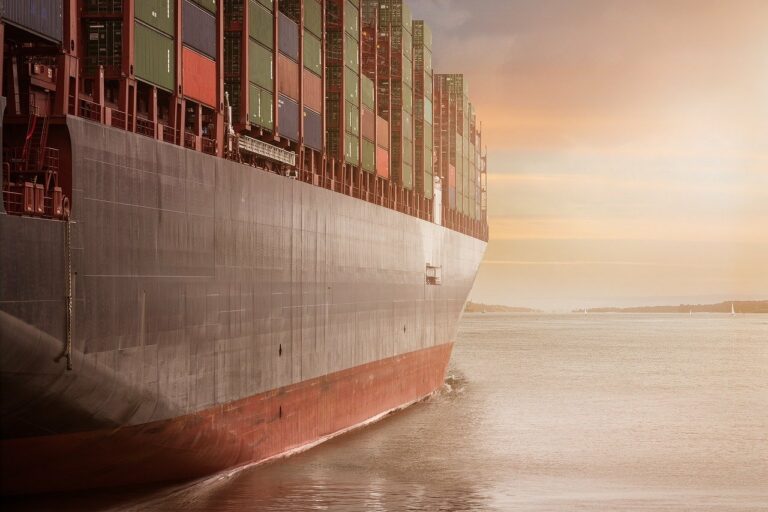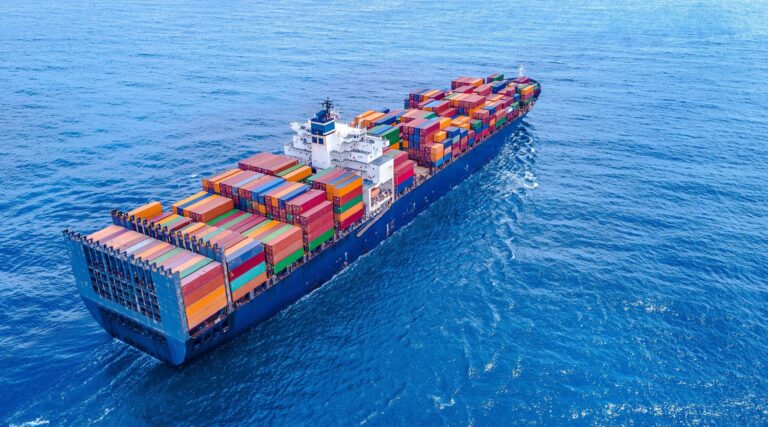17 Types of Shipping Container Units in Logistics- GoComet
Shipping containers are the backbone of modern logistics, enabling the efficient movement of goods across the globe. With over 90% of the world’s trade transported by sea, choosing the right container is crucial to ensure cargo safety, reduce costs, and optimize shipping operations.
From general-purpose units to specialized designs, each type of container is built to meet specific shipping needs. This blog explores the different types of shipping containers, their features, and their ideal applications, helping businesses make informed decisions for seamless freight forwarding.
1. Dry Storage Container
Dry storage containers dominate global logistics because of their versatility. Their enclosed design shields cargo from harsh weather, making them suitable for transporting a wide range of non-perishable goods. They are the go-to choice for businesses looking for cost-effective shipping solutions.
2. Flat Rack Container
Flat rack containers offer unmatched flexibility for oversized cargo. Their collapsible sides ensure easy customization during loading, while the sturdy end walls keep heavy items secure. Industries handling irregularly shaped equipment often rely on these containers for reliable transport.
3. Open Top Container
Open top containers are a lifesaver for cargo that doesn’t conform to height restrictions. Their fully removable roof simplifies loading tall machinery or equipment using cranes, ensuring minimal handling risk.
4. Tunnel Container
Tunnel containers are all about accessibility. Dual-end doors allow simultaneous loading and unloading, reducing downtime. Their robust design is perfect for high-frequency operations in construction or steel industries.
5. Open-Side Storage Container
Open-side containers make handling awkwardly shaped cargo a breeze. The full-side access eliminates loading challenges, saving time and labor. These containers are particularly useful in industries dealing with oversized or delicate goods.
6. Refrigerated ISO Containers (Reefers)
Reefers go beyond standard refrigeration. They use advanced cooling systems to ensure consistent temperature control, vital for industries like pharmaceuticals or fresh produce. These containers help businesses maintain quality and safety during transit.
7. Insulated or Thermal Containers
Thermal containers excel in transporting goods that require warmth. Equipped with built-in heating systems, they are crucial for industries needing consistent heat to protect their cargo, such as chemical manufacturing or biological research.
8. Tank Containers
Tank containers prioritize safety for bulk liquid transport. Their anti-corrosive interiors and secure fittings prevent leaks and contamination. They are indispensable for industries moving large volumes of chemicals or food-grade liquids.
9. Cargo Storage Roll Container
Compact and efficient, cargo roll containers enhance logistics within warehouses and retail spaces. Their foldable structure allows for quick storage and easy mobility, streamlining operations in fast-paced environments.
Must Read: Quarterly Region-Specific Report on Port Congestion – 2023!
10. Half-Height Containers
Half-height containers offer a practical solution for bulk goods that require frequent loading and unloading. Their robust build ensures durability in industrial settings, where they handle tough materials like coal or stones with ease.
11. Car Carriers
Carriers designed for vehicles prioritize safety and precision. Their design minimizes movement during transit, protecting vehicles from damage. This container type is essential for long-distance automotive logistics.
12. Intermediate Bulk Shift Containers
These containers are all about efficiency in bulk transport. Their design caters to industries needing quick unloading mechanisms, making them a staple in the agriculture and manufacturing sectors.
13. Drums
Drums are compact yet powerful storage solutions for liquids. Their sturdy, leak-proof construction makes them ideal for hazardous materials. They shine in scenarios where maximum security for liquids is non-negotiable.
14. Special-Purpose Containers
Custom-built for specific needs, special-purpose containers offer tailored solutions for sensitive cargo. Whether it’s high-value electronics or defense equipment, these containers ensure secure transit.
15. Swap Bodies
Swap bodies simplify intermodal transport. Their lightweight build makes switching between road and rail seamless. Though not stackable, their versatility in land-based logistics is unparalleled in Europe.
16. Double Door Container
Double-door containers maximize convenience with doors at both ends. Their design speeds up operations and reduces the need for additional handling, making them perfect for time-sensitive industries like liquor freight forwarding.
17. Hard Top Container
Hard top containers provide the strength of steel roofs with the flexibility of removal. They are ideal for transporting heavy equipment that requires crane-assisted top loading, ensuring durability even under extreme conditions.
Comparison of Shipping Container Types
| Container Type | Standard Size(s) | Ideal For | Key Features |
| Dry Storage Container | 10 ft, 20 ft, 40 ft | General cargo like electronics, clothing, furniture | Fully enclosed, weatherproof, customizable with liner bags for liquids |
| Flat Rack Container | 20 ft, 40 ft | Oversized cargo like machinery, pipes, vehicles | Collapsible sides, sturdy end walls for secure transit |
| Open Top Container | 20 ft, 40 ft | Tall or bulky items like industrial equipment | Removable roof, lashing rings for crane-assisted loading |
| Tunnel Container | 20 ft, 40 ft | Heavy materials like steel, construction goods | Doors at both ends, quick loading/unloading, weatherproof seals |
| Open-Side Storage Container | 20 ft, 40 ft | Wide items like timber or steel sheets | Full-length side doors for wide access |
| Refrigerated ISO Containers (Reefers) | 20 ft, 40 ft | Perishable goods like food, medicine, flowers | Temperature-controlled, corrosion-resistant materials, integrated cooling systems |
| Insulated or Thermal Containers | 20 ft, 40 ft | Goods requiring warmth like chemicals, bio-materials | Durable materials, equipped with electrical heating systems |
| Tank Containers | 20 ft | Bulk liquids like oil, chemicals, wine | Anti-corrosive materials, secure fittings to prevent leaks |
| Cargo Storage Roll Container | Varies | Stacked goods in retail or warehousing | Foldable design, lightweight with rollers for mobility |
| Half-Height Containers | 20 ft | Dense, heavy goods like coal or ores | Low center of gravity, durable steel for stability |
| Car Carriers | 20 ft, 40 ft | Vehicles | Collapsible sides, secure fittings for stability during transit |
| Intermediate Bulk Shift Containers | Varies | Intermediate bulk goods like grains, powders | Discharge points for easy unloading, suited for agriculture/manufacturing |
| Drums | 58 gallons (220 liters), 116 gallons (440 liters) | Liquids and powdered goods | Made of steel, fiber, or plastic; excellent for hazardous materials |
| Special-Purpose Containers | Varies | Custom cargo like weapons or electronics | Tailored for specific needs, high-security features |
| Swap Bodies | 20 ft, 30 ft | Road and rail transport in Europe | Convertible tops, lightweight, non-stackable |
| Double Door Container | 20 ft, 40 ft | Fast loading/unloading of goods like liquor freight | Doors on both ends, secure locking, weather-resistant |
| Hard Top Container | 20 ft, 40 ft | Heavy-duty cargo like machinery | Removable steel roofs, suitable for crane-assisted loading |
Final Words
Shipping containers are more than just metal boxes they are vital tools that shape the global supply chain. Each type serves a specific purpose, ensuring goods are transported efficiently, safely, and cost-effectively.
By understanding the unique features and applications of these containers, businesses can select the most suitable option for their cargo, enhancing operations and ensuring customer satisfaction.
Whether it’s standard dry storage, temperature-controlled reefers, or specialized unitsx, the right container can make all the difference in bulk liquor freight forwarding and beyond. Optimize your shipping with the perfect container and stay ahead in today’s competitive logistics landscape.
Track your shipping containers for free, track here.
For more information on supply chain-related topics, do check out our Freight Knowledge Center.






